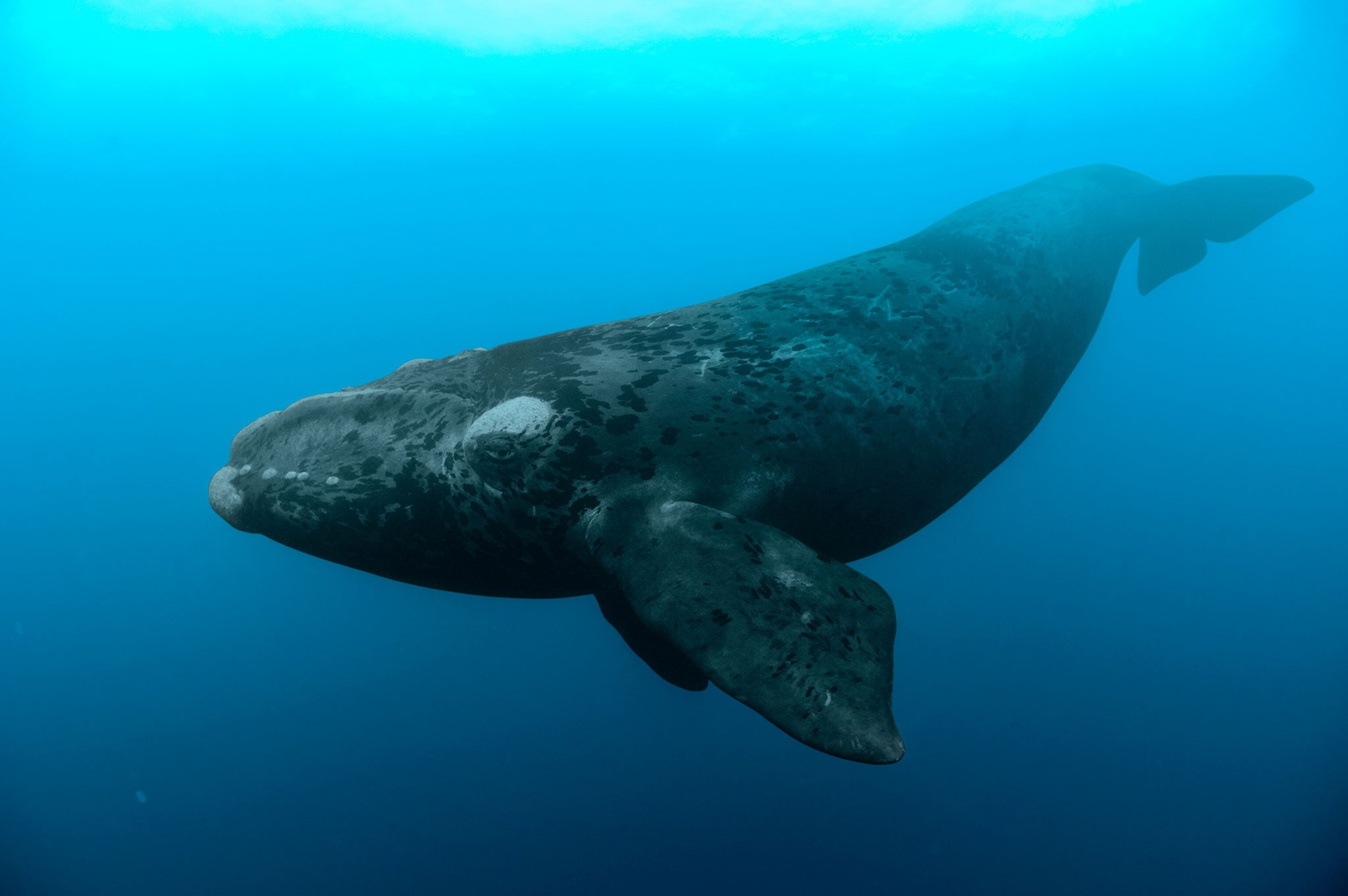
In Unprecedented Loss, Endangered Whales Die of Mysterious Cause
An estimated 500 North Atlantic right whales exist globally, making the recent deaths even more alarming.
Update, August 2: Fisheries and Oceans Canada (DFO) released a statement on August 1 saying a tenth North Atlantic right whale was found dead in the Gulf of St. Lawrence. DFO is working to determine the cause of death of the whales, again stating that they are "unprecedented," and "very concerning."
Preliminary findings from necropsies performed on three of the whale carcasses published on July 3 suggest two of the whales died from blunt trauma consistent with ship strikes and the third died from chronic entanglement in what was likely fishing gear. A complete report detailing the analyses of the whale carcasses is expected to be released in six weeks.
DFO continues to reiterate a number of steps being taken to protect North Atlantic right whale populations, but activists have called on the government to take more immediate steps toward conservation.
When six massive endangered animals turn up dead in the span of a few weeks, conservationists do everything they can to find out why.
Although they seemed otherwise healthy, the North American right whales were all recently found dead in the Gulf of St. Lawrence in Canada. Now, Fisheries and Oceans Canada, the Marine Animal Response Society, the Canadian Coast Guard, and others are working together to find out why the whales died.
Right whales are considered the rarest of all whale species, and the International Union for the Conservation of Nature estimates that only about 350 individuals still exist in the Northwest Atlantic, which was once home to tens of thousands. The Department of Fisheries and Oceans Canada estimates 500 exist globally.
The first dead whale, reported on June 6, was found drifting off the coast of the Magdalen Islands, east of New Brunswick.
"For this species, even one animal is a hit to the population," said Tonya Wimmer, director of the Marine Animal Response Society. The species never fully recovered from 20th-century whaling practices that drastically reduced their numbers. They are recognized under the Canadian government's Species at Risk Act, and in the U.S., the animals are afforded protections under the Marine Mammal Protection Act.
A little over a week after the first whale was found, a second was found on June 19, and a third was found on June 20. According to Wimmer, the other three were found from June 20-23.
"It seems very odd that they would die in this time frame and in the same area," Wimmer says. "It's catastrophic."
Cause of Death
The waters around St. Lawrence are home to about a dozen cetacean species. Some, such as the beluga, have made the gulf their permanent summer home. But marine animals face a number of threats in the busy port area, from being struck by ships to contracting toxic infections.
A 2013 report found that water contaminants, high levels of noise, decline in prey availability, and global warming all negatively impacted the St. Lawrence beluga population, which shares habitat with right whales. And unlike belugas, the whales feed on zooplankton, which are also highly susceptible to changes in climate.
Wimmer and other local organizations are considering pulling one of the carcasses to shore to perform a necropsy to determine the exact cause of death. Wimmer could not provide an estimate of when results of the necropsy for these six whales would be available, but researchers have a small window of opportunity as the carcasses are already decomposing. Cause of death can sometimes be seen right away, while other fatalities are less immediately visible.
If researchers and government officials identify a common cause of death, they can make recommendations for protective action, such as regulating fishing catches or rerouting ship lanes to try to avoid the paths of whales.
"No one organization could this," adds Wimmer, who stresses the importance of collaboration to save the species. "What we're doing now is keeping them from the brink of extinction."